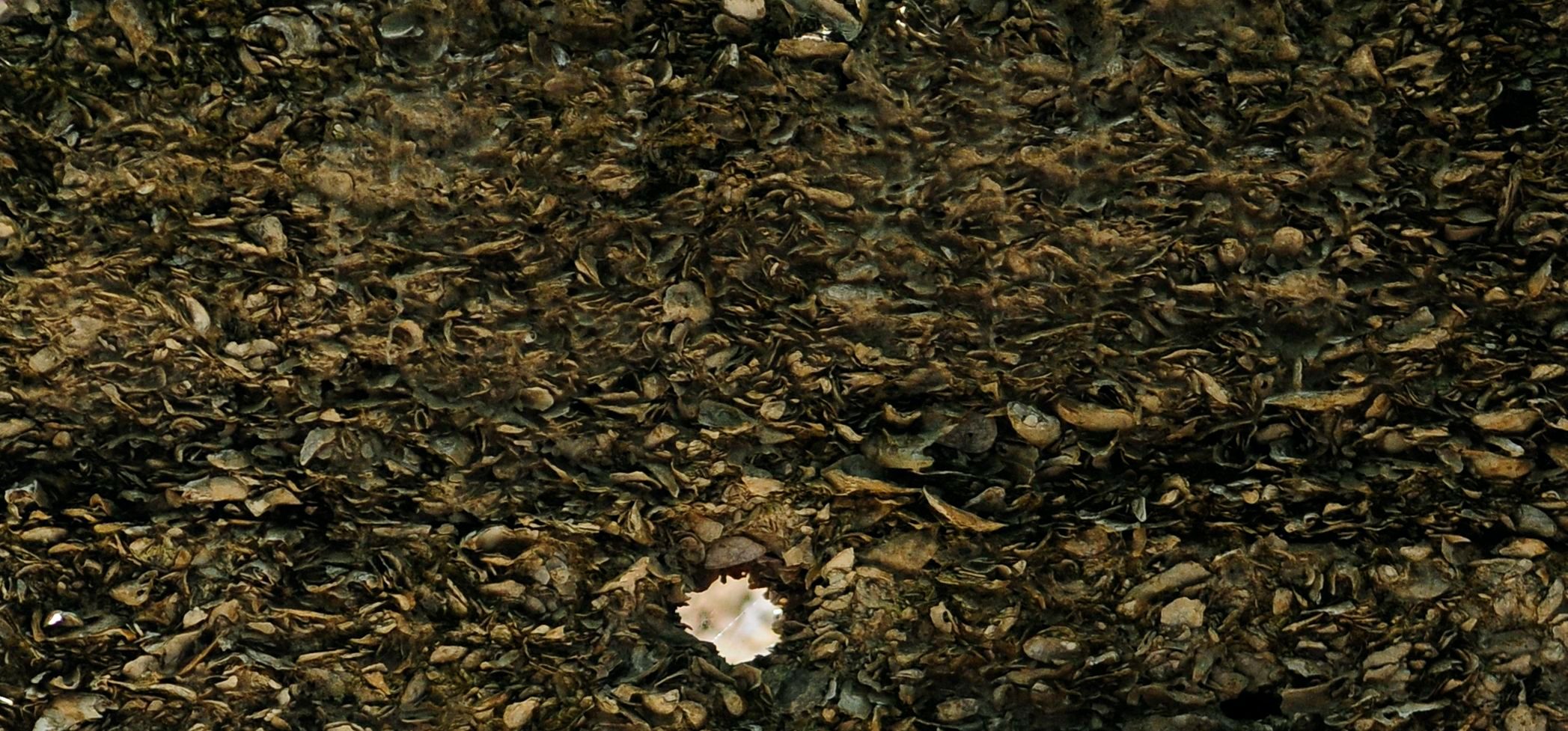This poem will appear in the next issue of the LARB Quarterly Journal: Weather, No. 24
To receive the next issue of the LARB Quarterly Journal, become a member.
¤
The Road to Chocolate Plantation
I
We leave Savannah in search of searching.
My foot weighs down the road for an hour
until we cross over into Meridian — a journey
I’ve taken before, not in this seat
but following my cousin’s curious eye
for history. At sixteen, I understood then
what I can’t recall today. I remember
the drive, the walk to the shore, and
the bus ride into Sapelo. I remember picking at
a charred mullet fish fresh from the water,
roaming the heritage festival, scanning a Bible
in Gullah — native and not. Today there is none
of that, only the deeper search of remembrance
and belonging — capturing some stable place
between rippling gray water and shore.
I drive further. In the back, my baby
brother’s head bobs against the window —
his first journey, already courting sleep.
II
At the port we board the school bus, its rickety
machinery — aged but useful — carries us
into the island, past Behavior Cemetery,
past the post office, past into another past.
The tour guide’s heavy foot plunges further
and we lurch into the dense coastal Georgia bush —
the stick-like trunks tall and fallen, the spikey
growth of small palm trees waving us through.
Beneath us, the red earth brambles up
after yesterday’s rain, the puddles bound
to form rivers that could swallow us
here on an island nearly lost to memory.
We trudge forward, and I see myself
in my brother sitting across from me
as if on a school field trip, unsure
of the destination but down for the ride.
III
At Chocolate Plantation
I heed a path trotted for me before.
I am this studious — furthering
and furthering and furthering. What else
is there but the tabby walls crushed
beneath my feet, nearly forgotten?
Like me, they too were shaped by the hands
of ancestors. Beyond, my brother
walks through and in the historical,
not privy to the storied. At ten years old,
he looks for the shells that have fallen
from brick, those dislodged
or never having found place in stone.
I wonder what he will take from this
and search for narrative, placing the hollow
against my own for a voice, a whisper, a sigh.
We explore separately, seventeen years
between us and what we believe to know
about heritage. In the end, we each take
what we need to survive.
On an opposite shore, I ask what he has learned.
“That the slaves made these,” he says,
holding forth his collection of fragile fossil.
He is the smarter one, having taken narrative
into his own hands before its forgetting —
using more than his ear for the listening.
¤
LARB Contributor
Malcolm Tariq is poet and playwright from Savannah, Georgia. He is the author of Heed the Hollow (Graywolf Press, 2019), winner of the 2018 Cave Canem Poetry Prize, and Extended Play (Gertrude Press, 2017). A graduate of Emory University, Malcolm has a PhD in English from the University of Michigan. He lives in New York City.
LARB Staff Recommendations
Two Poems
Quest of the Avatars
Claire L. Evans on the history of the avatar
Did you know LARB is a reader-supported nonprofit?
LARB publishes daily without a paywall as part of our mission to make rigorous, incisive, and engaging writing on every aspect of literature, culture, and the arts freely accessible to the public. Help us continue this work with your tax-deductible donation today!
